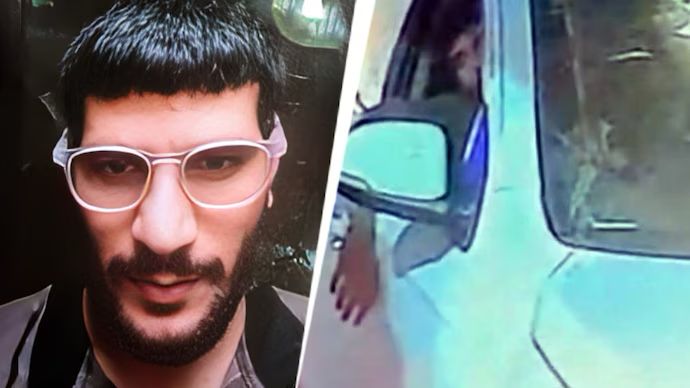In the Red Fort terror attack case, the investigators have traced the origins of the explosives used in the deadly blast to Haryana’s Nuh. The explosives procurement network has been traced to the Basai Meo village in the Nuh district and neighbouring areas of Faridabad, Gurugram, and Saharanpur.
The authorities say that Jihadi Dr Umar Un Nabi and his accomplices from the Faridabad module purchased fertilisers and ammonium nitrate from here in the last few months.
Posing as farmhouse owners while approaching fertiliser shops in Nuh, the deceased Umar Un Nabi and other accused persons started buying NPK fertilisers in small quantities over the last three-four months.
As per the investigators, the Jihadi module collectively raised Rs 20 lakh to purchase over 26 quintals of NPK fertilizer and over 1,000kg of ammonium nitrate. These materials are powerful enough to make multiple bombs.
“They spent over Rs 20 lakh, with each member contributing. The group also bought rifles and cartridges from Srinagar with help from their handlers, including one codenamed ‘Ukasha’,” a Delhi Police officer said.
The authorities have identified three fertiliser shops which supplied materials to the terror module members, who had posed as landowners and made payments digitally. The police are conducting further investigation. One of the suppliers has been identified as Dinesh Kumar alias Dabbu Singla, a fertiliser dealer from Pinangwan. He allegedly sold 300 kg of ammonium nitrate to the terror module.
The police have established that Nuh was the primary source for obtaining materials for making explosives. One of the accused Jihadi terrorists and a doctor at the Al Falah University, Muzammil Shakeel Ganaie, frequently visited the fertiliser shops.
“They didn’t buy everything at once. They collected it gradually over three or four months,” an officer said.
The investigation revealed that both terrorists, Dr Umar and Dr Muzammil, relied on local contacts in the rural Faridabad to locate sellers and transport the materials. During the questioning of over two dozen locals in Nuh, it emerged that Umar Un Nabi claimed that he wanted to set up a mining business in Kashmir.
“He introduced himself as a doctor exploring investment opportunities,” one local trader questioned by the police said.
Meanwhile, Nuh’s mining belt has also come under scanner after the ammonium nitrate supply chain was traced to the area. The mining belt in this district is infamous for illegal quarrying and the routine utilisation of blasting chemicals. Ammonium nitrate is available here since it is used in blasting rocky hills.
Nuh: The ‘Mini-Pakistan’ and crime hub
Nuh district is a Muslim-dominated area in southern Haryana. On 12th November, the Jammu and Kashmir Police arrested one Maulvi Ishtiyaq from Mewat over alleged links to Jaish-e-Mohammed (JeM) and Ansar Ghazwat-ul-Hind.
The Mewat region is also infamous as a ‘Mini Pakistan’ for rapid radicalisation of Muslim youths and anti-Hindu crimes. In 2023, Islamists launched a planned attack on thousands of Hindus participating in the ‘Brij Mandal Jalabhishek Yatra. They torched several vehicles, pelted stones, and opened indiscriminate fire on Hindu devotees part of the Shobha Yatra.
In July 2024, the police arrested two men named Irshad and Ejaz for duping people by promising them lakhs for impregnating childless women. The incident took place in the Nuh district (Mewat) region of Haryana. The duo operated more than four Facebook accounts and posted fake advertisements on social media about childless women in search of men to impregnate them.
In April 2024, the Nuh police arrested 42 cyber criminals from various parts of Nuh, Mewat in two days concerning several cyber fraud cases registered nationwide. The arrested accused include Deen Mohammad, Asif, Arif, Sarfaraz, Saqib, Ijaz, and Munajir among others.
During the operation, a total of 50 cellphones, fake Aadhar cards, over 90 SIM cards procured with forged documents, cash, and several ATM cards were seized from the possession of the arrested accused. This was the biggest crackdown on cyber criminals since April 2023. Back then, the police had arrested 66 cyber criminals from 14 villages in an operation which included around 5,000 cops.
In June last year, the Nuh Police arrested two Muslim men named Khalid and Akil for impersonating the Deputy Superintendent of Police (DSP) and defrauding a former sarpanch to the tune of ₹95,000.
Over the years, Nuh had earned the notoriety as ‘new Jamtara’, a reference to the small Jharkhand town which became the epicentre of online frauds.
In November 2023, the Nuh Police’s Crime Investigation Agency (CIA) team busted a sextortion racket in Nuh and arrested 6 accused identified as Mastan, Ibram alias Imran, Moin son of Nasubat, Shamshuddin son of Jamil, Irfan son of Sheru, and Shahid son of Khurshid.
Further, Opindia had earlier reported that an Islamist mob broke inside the cyber police station in Nuh on 31st July 2023, using a hijacked bus during the Nuh violence. In a targeted attack, the violent mob ransacked and vandalised everything in sight with the ulterior motive of destroying crucial evidence against cyber criminals.
The Islamists also attempted to burn documents and set the police station on fire. Later, the police informed that the attack on a cyber police station in the Nuh district of Haryana was pre-planned and aimed at destroying evidence of cyber fraud collected by the cops.
Besides cybercrime, anti-Hindu violence and love jihad, Nuh is also infamous for cattle smuggling and attacks on Gaurakshaks (cow protectors). OpIndia has documented many cases wherein local Hindus and even police were attacked by Islamists on multiple occasions.

